Visit to Cape Coast University and farming communities in Ghana
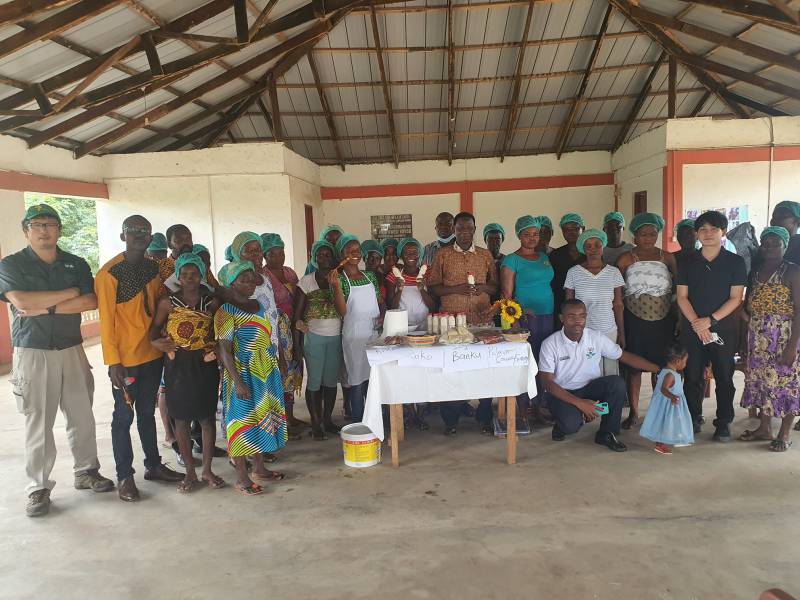
The SAA HQ team and Dr. Oladele Idow, HRD (SAFE) coordinator, visited Cape Coast University Ghana on March 15 and 16, 2022. The SAA team was received by the Dean of the School of Agriculture, Head of Department of Agricultural Economics and Extension and staff of the Department. A very attractive and welcoming features that littered the portion of Cape Coast University are Sasakawa Road, Sasakawa Centre, Sasakawa Restaurant, Sasakawa Chalet and Guest house that speak volumes of enduring legacy and visible impacts of university contributing to the transformation of agriculture and rural livelihoods in Ghana. The visit gave opportunity to the SAA team to meet, staff, students and farming communities. During these meetings, the historical background and achievement as well as valuable lessons for the future were highlighted.
Sasakawa Africa Fund for Extension Education, more known as SAFE (the program is now integrated into SAA’s Human Resource Program), started in 1993 at Department of Agricultural Economics and Extension (DAEE) of the University of Cape Coast, Ghana with yearly target enrollment of 25-30 students. The SAFE program which consists of Demand-Driven Curriculum (DDC) and Supervised Enterprise Project (SEP) now covers 29 universities and agricultural colleges in 11 countries of Africa.
The SAFE program currently has 10 Mid-career BSc Agricultural Extension trainees enrolled for 2 years of study; however DAEE has introduced Pre-career BSc Agricultural Extension and Community Development for 4 years of study which has 57 enrolled students mainly composed of youths and women.
The concept of Supervised Enterprise Project (SEP) has been incorporated into the Pre-career BSc Agricultural Extension and Community Development as Student Community Development Project (SCDP) which currently covers 7 out 16 regions of Ghana.
Some of the SCDP topics covered by pre- career students include;
- Promoting the use of soybean for household food–to-food fortification in Ewurunia Community, Kassena Nankana West District in the Upper East Region
- Promotion of effective agronomic practices to control black pod diseases among Asemkor group farmers
- Introduction of Jaguar F 1 and Cobra F1 tomato varieties to farmers in Asuhylae in Dormaa East District of Bono Region of Ghana
- Promoting use of hermetic bag for improved maize storage among Kpeve Maize farmers in the South Dayi District of Volta Region
The SEP component of mid-career and the SCDP component of the pre-career have helped the University of Cape Coast to provide effective technical backstopping to extension agents of Ministry of Food and Agriculture to maximize human capital utilization and efficiently utilize resources to serve the communities outside the campus. This synergy of communities of interventions outside university campus is improving the livelihoods of farmers, processors, marketers and input dealers in a way that transform agriculture.
Funding to the SAFE program in University of Cape Coast Ghana, stopped over 25 years ago, but the program has been sustained through income generating facilities such as the guest house, students’ hostels, and introduction of pre-career program; which has led to the graduation of more than 600 extension personnel now employed by Ministry of Food and Agriculture, Ghana.
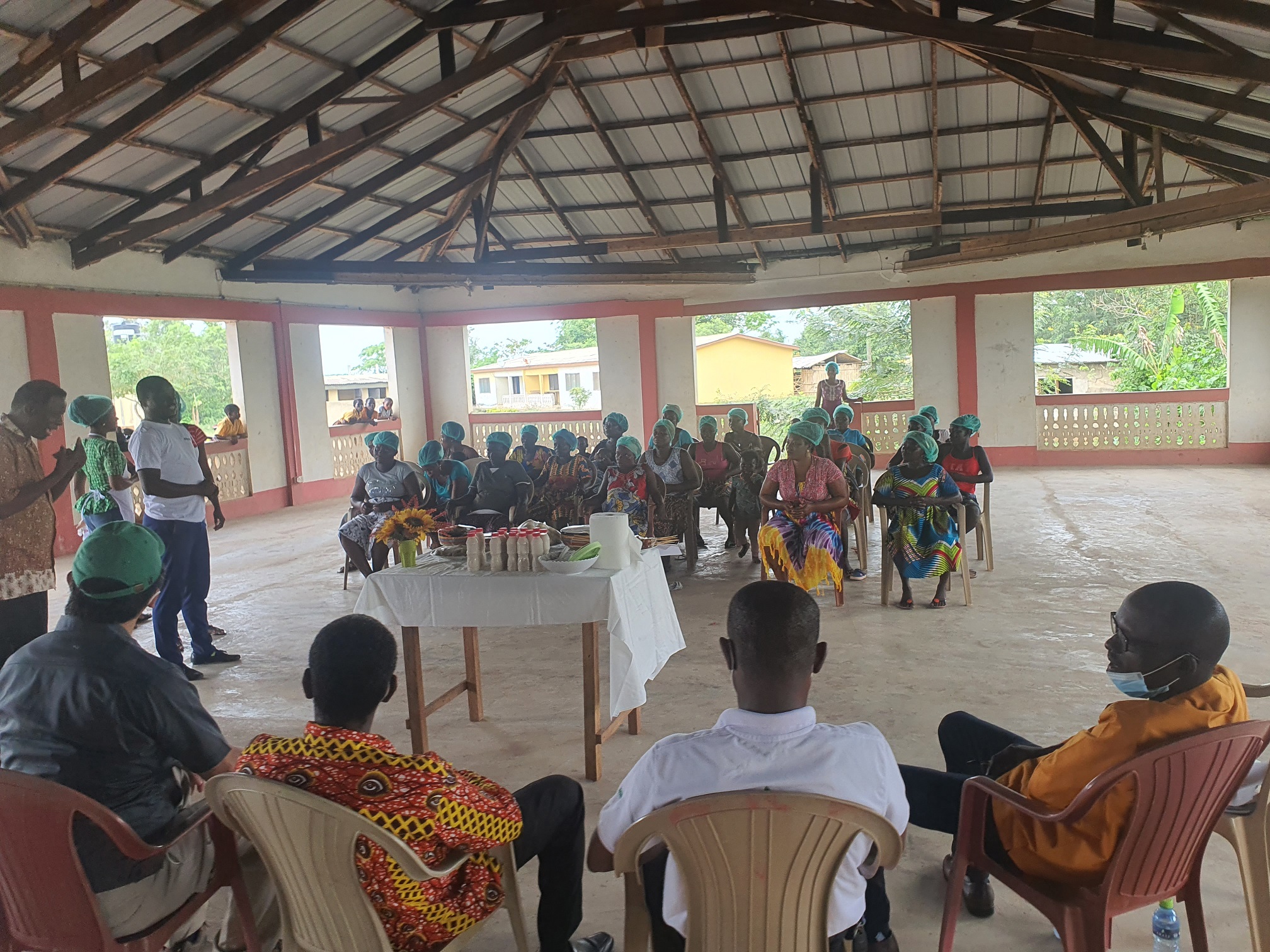
Field visits to SEP and SCDP locations shows the integration of Regenerative agriculture, Nutrition sensitive agriculture and market oriented agriculture activities to the operations of the university and ministry of Food and Agriculture. In specific terms, the introduction of soybean production to a women farmers’ group where soybean has never been cultivated. The soybean yields from the demonstration plot by the SEP and SCDP trainees were used to demonstrate utilization in different forms and menus. The second SEP and SCDP location on the introduction of improved stove to women Garri processing group to reduce carbon monoxide poisoning among women, cost of production and fuelwood burning; thus climate –smart.
DAEE is looking forward to serve as hub for extension information management and dissemination to farming communities in Ghana, provide short courses/ in-service training on technical and extension communication skills, weekend degree programs and distance/sandwich modular degree programs for extension staff. The lessons of the sustainability and synergy of the university and ministry of food and agriculture is vital to re-invigorate SAA programs in other countries and merge field and universities’ community of intervention into same locations for efficiency of resources, scaling off impact and effectiveness of SAA activities.
SAA Publications
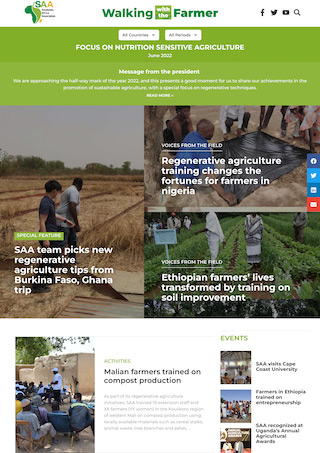
E-newsletter
"Walking with the Farmer"
SAA publishes a bimonthly e-newsletter reporting on SAA activities.
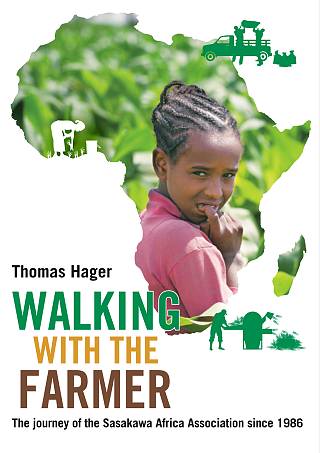
SAA history book
"Walking with the Farmer: The journey of the Sasakawa Africa Assoication since 1986"
This book chronicles the history of SAA from its inception to the present.
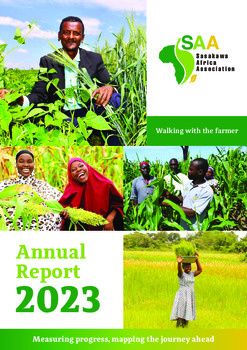
Annual Report
Annual Report FY2023
Annual Report FY2023 is available here.




